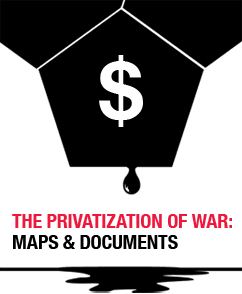Demokratie
A Preview of the Future
Workers’ Control in the Context of a Global Systemic Crisis
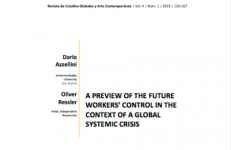
One of the ‘concrete utopias’, as Ernst Bloch called them, realistic possible concepts for a better world, that can already be found in the here and now, are ‘recuperated companies’. Focusing on the examples of the worker-controlled factories RiMaflow in the industrial periphery of Milan and Officine Zero in Rome this text allows a glimpse of how society could be organised differently.
Elezioni presidenziali in Venezuela, 20 maggio 2018
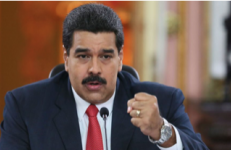
I primi risultati preliminari annunciati dal Consiglio Nazionale Elettorale del Venezuela danno il presidente Nicolás Maduro come vincitore delle elezioni presidenziali con il 68% dei voti con una partecipazione elettorale tra il 46 e il 48%. Maduro ha ricevuto 5.823.728 voti. Il principale candidato dell’opposizione Henri Falcón ha raggiunto il 21%, 1.820.552 voti, l’oppositore evangelico Javier Bertucci 925.042 voti e il candidato della sinistra trotzkista di opposizione Reinaldo Quijada ha ricevuto 34.614 voti.
Elecciones presidenciales en Venezuela, 20 de mayo 2018
"Quien descalifica el resultado electoral, quien no lo entiende, no entiende a Venezuela“
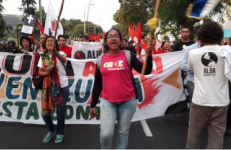
Los primeros resultados preliminares anunciados por el Consejo Nacional Electoral (CNE) en Venezuela dan al presidente Nicolás Maduro como ganador de las elecciones presidenciales con un 68% de los votos y con una participación electoral entre el 46 y 48%. Maduro recibió 5.823.728 votos. El principal candidato opositor Henri Falcón juntó un 21%, 1.820.552 votos; el opositor evangélico Javier Bertucci 925.042 votos y el candidato de la izquierda opositora trotskista Reinaldo Quijada, recibió 34.614 votos.
Bilbao resucita a Karl Marx
Entrevista El Salto: “La democracia tiene que estar adaptada a los diferentes lugares”
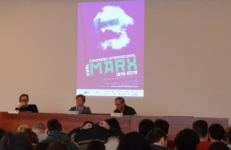
Bilbao se tiñó de rojo la semana pasada, y esta vez la culpable no fue ninguna afición visitante, sino la vuelta de uno de los clásicos. Los días 1, 2 y 3 de marzo la capital vizcaína acogió el Congreso Internacional Karl Marx, celebrado por el bicentenario de su nacimiento y organizado por el grupo de investigación Parte Hartuz y el Departamento de Ciencia Política y de la Administración de la UPV-EHU, con el apoyo de la Universidad y la colaboración de Betiko Fundazioa y diversos agentes políticos, sociales y sindicales.
Entre la crisis climática, ecológica y social del planeta: ¿aún existen caminos para la resistencia y las utopías?

Azzellini, Dario. “Entre la crisis climática, ecológica y social del planeta: ¿aún existen caminos para la resistencia y las utopías?" RBBA. Revista Binacional Brasil Argentina: diálogo entre as ciências. 13.2:1-25
Dario Azzellini en el I. Congreso Internacional sobre Democracia Comunal
"El trabajo común: bases teóricas y el ejemplo de la empresas recuperadas por sus trabajadores"
Dario Azzellini: "El trabajo común: bases teóricas y el ejemplo de la empresas recuperadas por sus trabajadores"
Intervención en el I. Congreso Internacional sobre Democracia Comunal: "Comunidad, poder popular y autogobierno: prácticas para transformar la democracia", organizado por Paz con Dignidad – Batea Duintasunarekin / Parte Hartuz de la Universidad del País Vasco UPV/EHU. 13.10 - 16.10.2021.
Talk at the Asia-Europe People’s Forum and transform! conference "Our Common Social Future," Barcelona, June 8-10, 2018 - 10 juni 2018
Commons and Conflict
Today, everyone is speaking about commons and ‘commoning’, everyone wants to build commons. The World Bank has a group which is supposedly ‘protecting and improving the global commons’ and it reaches out to the private sector to ‘advance common goods’. You can find texts on commons on the website of the European Union, banks organize seminars on the commons. Transnational companies tell us they are building the commons, big magazines declare that Uber is commoning cars, and that the “sharing economy” is a form of commoning.
Is democracy working?
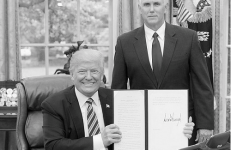
The term democracy is generally used as a synonym for liberal democracy, which is far from being the only possible form of democracy; indeed, it is even questionable whether liberal democracy was ever intended to be truly democratic. For centuries, liberals and democrats have been fierce opponents. Liberals only accepted democracy when it was limited to the political sphere, excluding it from the economic and social sphere. Liberal democracy became the new form of governance of the emerging production model (industrial capitalism).
Constituent and Constituted Power: Reading Social Transformation in Latin America
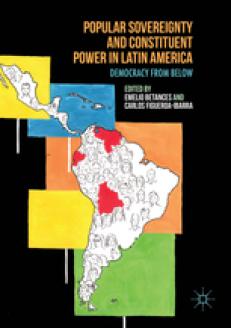
Popular Sovereignty and Constituent Power in Latin America.
Democracy from Below.
Globale urbane Proteste, Betriebsbesetzungen zur Produktion unter Arbeiterkontrolle und lokale Selbstverwaltung
„This is a process not a protest“
Die Verbindungen und Gemeinsamkeiten zwischen den verschiedenen Protestbewegungen
seit Beginn der aktuellen Krise 2008 von Tunesien und Island
über die weltweiten Platzbesetzungen bis zu den aktuellen französischen
Protesten wurden von zahlreichen Autor_innen herausgestellt (Arenas 2014,
Castañeda 2012, Castells 2012, Cossar-Gilbert 2016, Mason 2013, Roos/
Oikonomakis 2014, Sitrin/Azzellini 2014). Die Bewegungen entstehen in
einer Krise der Repräsentation und teilen die Kritik – ob in autoritären
Regimen oder repräsentativen Demokratien – an der Repräsentation. Sie























